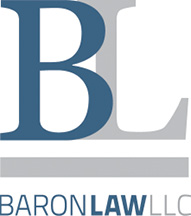Sponsored
What is a trust? Why do I need one?
by Dan A. Baron, Baron Law LLC
If you are familiar with the basics of estate planning, then you have likely heard of a trust. The term “trust” itself can be fairly ambiguous and refer to a wide variety of estate-planning tools. What all trusts have in common is that they are used to provide a layer of separation from yourself and your assets in a strategic way. In some cases, this means protecting your assets from a Medicaid clawback, avoiding probate and ironing out distribution of assets after death, or minimizing your estate taxes. There are many considerations for how a trust could benefit you and your loved ones. It’s important to be aware of all the available options to ensure, with guidance from your Estate Planning attorney, so you make the best choice for you and your loved ones.
Revocable Trusts
Most people beginning to plan their estate may believe that they just need to draft a will. Unfortunately, in many situations a will is just too simple of an arrangement when it comes to the highly personalized needs of each individual estate plan. Moreover, a simple will does not avoid probate court.
One of the most common needs for customization that just can’t be done with a will is specification of the time and use of distributions of the assets. With a will, when you pass away, all of your assets are being sent (likely via probate court) straight to your beneficiaries with no additional considerations. Perhaps your children are 18 and 21 and you don’t think it would be wise for them to inherit a lump sum at that age. Maybe one child is in a marriage that doesn’t look like it’s going to last forever. Do you want their inheritance to become joint marital property and have their spouse take half if they split?
A revocable trust on the other hand can be customized in an infinite number of ways to ensure that your assets make it where they’re supposed to go, when they’re supposed to get there and by the means you want them to be distributed. Some of the most common customizations for a trust that cannot be accounted for in a will are annual stipends for pet caregivers, specifying a distribution schedule for young beneficiaries based on life events or achievements, or creating a life estate for property.
If you have assets that you would like a little more control over when it comes to distribution, loved ones that will require extra care after you pass, or want to protect your heirs from losing 5-15% of their inheritance to probate court, a revocable trust is likely a great option for you.
Irrevocable Trusts
Irrevocable trusts provide a layer of legal separation for your assets that helps protect them in a way that revocable trusts cannot. When you create an irrevocable trust, you retitle assets from your name to the trustee of your trust. Through this legal process and a waiting period of five years, you are able to create a sort of layer of protection between you and your assets which prevents them from being seized by Medicaid if you end up in a nursing home. With nursing homes costing an average of over $10,000 a month, this is a very important tool that is commonly used.
While the main benefit of an irrevocable trust is to protect your assets, there are some special considerations to be made before deciding if an irrevocable trust is right for you. It is important to keep in mind that an irrevocable trust is just that, irrevocable. This means that once you execute your trust you can no longer amend it. In other words, you will want to choose carefully what assets you put into the trust and who you name as trustee and beneficiaries, because once it is executed, you can’t walk back on it. For this reason, it is not uncommon to create both a revocable trust and an irrevocable trust, that way you can maintain control over some assets while stowing away others for protection down the road.
The main asset that we recommend placing in an irrevocable trust is your home. For the average homeowner, your house is one of your largest assets and it is worth protecting. If you have friends or loved ones who spent their final years in a nursing home, then you have likely heard stories of folks losing their home to Medicaid as a means to pay for their care. An irrevocable trust is the only way to protect your home from this unfortunate process, allowing you to preserve your legacy and pass on a piece of what you worked hard for to your loved ones.
How do I set up a trust? How do I find the right lawyer and prepare for the consultation?
If any of these estate-planning strategies sound like something you would be interested in, you might be wondering where to start. The first step is to find an attorney in your home state, as estate planning laws and strategies differ from state to state. Before your consultation, it is important to think about what you want to get out of your estate plan, and who you would like to be involved, including agents acting on your behalf and beneficiaries that you would like to inherit.
With everything in life, organization is essential to ensuring things are executed successfully. Too many times I’ve seen clients come into an initial consultation with folders stuffed with old estate-planning documents not knowing which are valid or up-to-date. Will your children know your wishes if you can’t articulate them efficiently and in an organized fashion? Probably not. Whether you’re creating a trust or not, getting organized is an essential part of estate planning for which you don’t need a lawyer.
For more information on revocable and irrevocable trusts, or to schedule a free initial consultation, please contact me at 216-573-3723 or
dan@baronlawcleveland.com.

Sponsored By
Baron Law LLC
Crowne Centre, Suite #600
5005 Rockside Road
Independence, Ohio 44131
216-573-3723
www.baronlawcleveland.com
Opinions and claims expressed above are those of the author and do not necessarily reflect those of ScripType Publishing.

